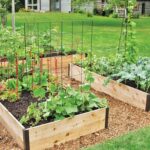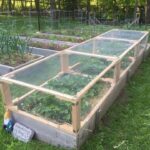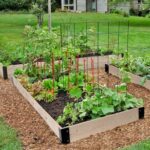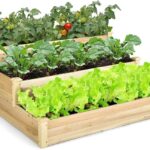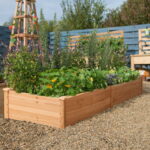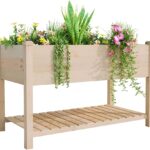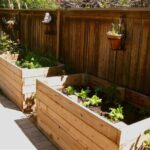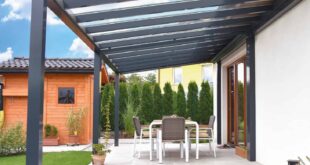Planter box vegetable gardens are a popular way for people with limited space or mobility to grow their own fresh produce. These compact gardens can fit on a small balcony, patio, or even on a windowsill, making them ideal for urban dwellers or those with physical limitations. With a little planning and care, a planter box garden can yield a bountiful harvest of vegetables throughout the growing season.
One of the key benefits of a planter box vegetable garden is its versatility. You can choose from a wide variety of vegetables to grow, depending on your preferences and the amount of sunlight your garden receives. Popular choices for planter box gardens include tomatoes, peppers, lettuce, herbs, and root vegetables like radishes and carrots. With careful planning, you can even grow larger vegetables like squash and cucumbers in a planter box garden.
When planning your planter box vegetable garden, it’s important to consider the size and depth of your containers. Most vegetables need at least 6-8 inches of soil depth to grow well, so make sure your planter boxes are deep enough to accommodate the root systems of your chosen plants. Additionally, make sure your containers have proper drainage holes to prevent waterlogged soil, which can lead to root rot and other issues.
Another important consideration for a planter box vegetable garden is sunlight. Most vegetables require at least 6 hours of sunlight per day to thrive, so choose a sunny spot for your garden if possible. If you have limited sunlight, consider planting shade-tolerant vegetables like lettuce, spinach, or kale. You can also move your planter boxes to follow the sun throughout the day to maximize light exposure.
Maintaining a planter box vegetable garden requires regular watering, fertilizing, and monitoring for pests and diseases. Water your plants regularly, keeping the soil evenly moist but not waterlogged. You can also add a slow-release fertilizer to your soil to provide essential nutrients for your plants. Keep an eye out for common garden pests like aphids, caterpillars, and snails, and take steps to control them before they damage your crops.
In conclusion, a planter box vegetable garden is a convenient and accessible way to grow your own fresh produce, even in limited space. By carefully selecting your vegetables, providing adequate sunlight and soil depth, and maintaining proper care, you can enjoy a bountiful harvest of home-grown vegetables throughout the growing season. With a little time and effort, you can create a thriving planter box garden that brings joy and nourishment to your table.

